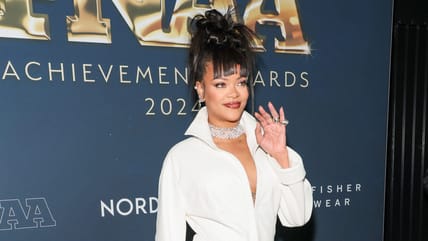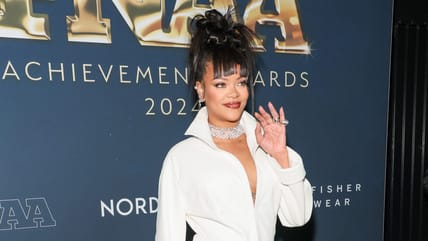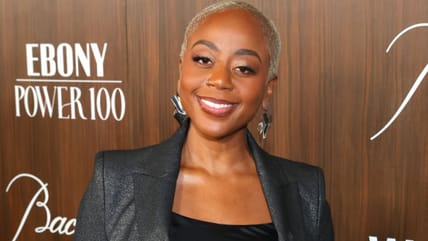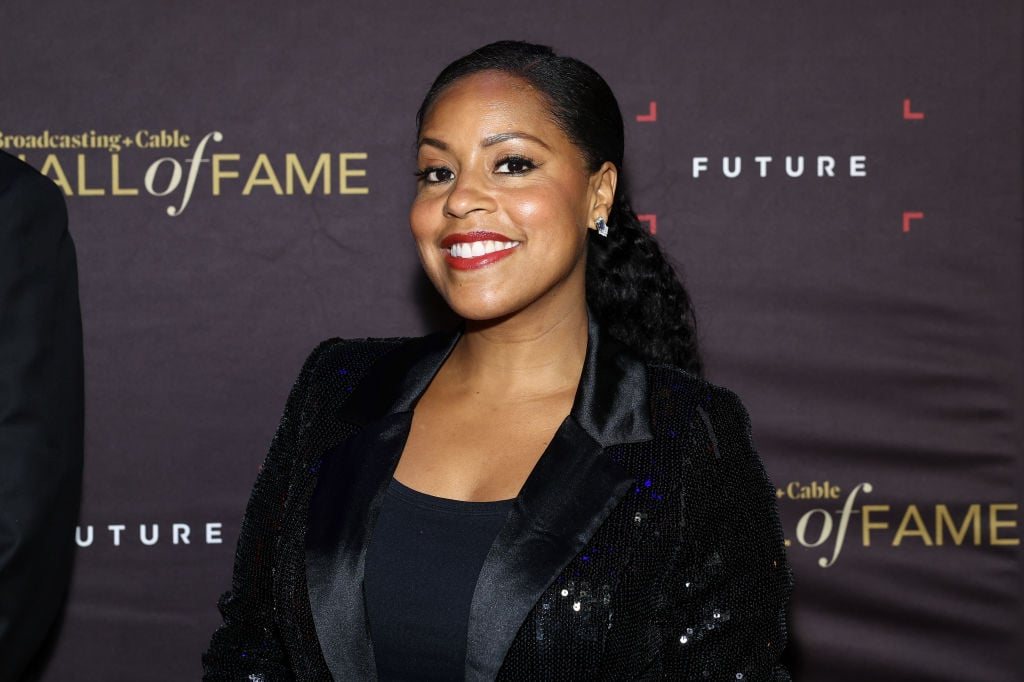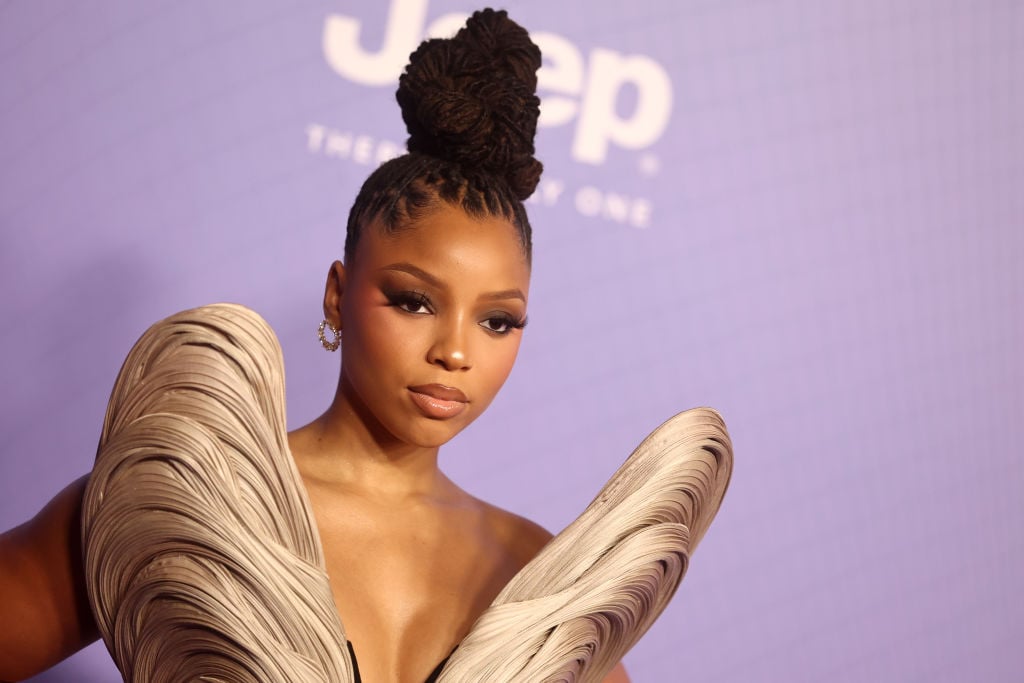Rihanna is accustomed to defying convention.
The nine-time Grammy winner has turned her wide-ranging string of hits, including “Umbrella” and “Work,” into a business empire worth an estimated $1.4 billion, placing her high on last year’s Forbes list of the richest “self-made” American women. The Barbados native stunned entertainment’s biggest stage with a pregnancy reveal during her solo 2023 Super Bowl halftime show. And her successful Fenty Beauty cosmetics brand revolutionized the makeup industry with its inclusive shades.
But it is not the megastar-turned-mogul’s long-awaited follow-up to 2016’s “Anti” album set to make waves this year. It’s her philanthropy.
Named after Rihanna’s grandparents and funded partially through her brands, the Clara Lionel Foundation is coming off a “refresh” that is poised to direct more funds toward climate solutions and women’s entrepreneurship in the under-invested regions of East Africa, the Caribbean and the U.S. South. After 13 years of relative anonymity, the nonprofit is ready for more visibility.
“Our founder is a woman from a small island nation who’s got global reach. She’s an entrepreneur. She’s a mom. She’s a creative,” said Executive Director Jessie Schutt-Aine. “So, we want an organization that reflects that spirit and that energy. She’s bold and she’s ambitious. She’s innovative. She always does things different. She’s a game changer.”
Experts say it’s rare to see such intentionality among famous philanthropists. Clara Lionel Foundation has also garnered praise for its embrace of “trust-based” giving, which empowers recipients with unrestricted funding.
NDN Collective founder Nick Tilsen said CLF lets his Indigenous power-building nonprofit “do the work on our terms” — and that other funders should take notes.
“They’re not a foundation that’s all up in your business, either,” Tilsen said. “They support. They see the work. They allow us to do what we need to do.”
Clara Lionel Foundation’s personal roots
Rihanna started the foundation with a $516,000 contribution after her grandmother died of cancer complications in 2012. That year, the musician established an oncology center at Barbados’ main hospital to expand cancer screening and treatment. And the young foundation focused on healthcare and Barbados for much of last decade.
By 2019, though, CLF had begun prioritizing emergency preparedness. Grantmaking jumped to more than $33 million in 2020 as the nonprofit provided much-needed pandemic relief and backed racial justice efforts. Post-pandemic spending slowdowns coincided with its internal transition, according to tax filings.
A revamped team and refined priorities now match its broader ambitions. A new director for women’s entrepreneurship, based in South Carolina, will build out that pillar’s programs. Black Feminist Fund co-founder Amina Doherty now oversees programs and impact. Rounding out its five new pillars are climate solutions, arts and culture, health access and equity, and future generations.
The youth focus was commended by Ashley Lashley, a 25-year-old whose foundation has worked with CLF to address environmental challenges in her native Barbados. She often hears leaders say that ‘youth are the future,’ she said, but those statements rarely translate into actual support.
“Rihanna’s foundation is a prime example of how women in power can help contribute to work that is being done at the community level,” Lashley said.
Rihanna told The Associated Press she hopes CLF will continue to be a force for “global inclusion in philanthropy.”
She reflected on the foundation’s 13-year transformation in a statement: “Today we have global reach, but that notion of love for community and for our roots runs deep in the DNA of the foundation.”
Finding partners — big and small
The latest example of that evolution is a partnership with The Andrew W. Mellon Foundation. Barbados’ “invaluable history” as “an essential chapter in the broader story of the African diaspora” is threatened by climate change, according to a Mellon press release.
Together, the two foundations announced, they will fund “artist-led initiatives” to protect that culture “while inspiring new narratives and opportunities internationally.”
Schutt-Aine views the partnership with Mellon — the largest philanthropic supporter of the arts in the U.S. — as a milestone for CLF. Justin Garrett Moore, the director of the Mellon’s Humanities in Place program, said the nonprofit’s name arose when his team asked contacts to recommend partners.
“We think there is an incredible platform that Clara Lionel Foundation has, with their founder, to bring this type of work into a legibility and visibility for the organizations that will be supported,” Moore said. “Also, just generally in the society, to help amplify the power of the arts.”
Among those grantees is a developmental performance arts program that also provides free social services to students in the nation’s capital of Bridgetown. Operation Triple Threat founder Janelle Headley said Clara Lionel Foundation helped the nonprofit afford a warehouse outfitted with acoustics panels, sound equipment and a dance floor.
The relationship began with a microgrant for scholarships. Operation Triple Threat now receives general operating support — a “revolutionary” investment, Headley said, because charitable donations are usually earmarked for specific causes. That flexibility proved especially helpful during the pandemic when rapidly changing circumstances created new needs like iPads for remote learning.
“It’s uncommon, to be honest, to have someone give a sizable donation unrestricted and say, ‘We trust you, your vision,’” Headley said. “That is very forward-thinking of them.”
A unique model for celebrity philanthropy
The approach is unique, according to Mary Beth Collins, the executive director of the Center for Community and Nonprofit Studies at the University of Wisconsin-Madison. She finds that celebrities typically engage in philanthropy only when necessary.
But Collins said CLF appears to think long-term about its partners and deliberately in its bottom-up funding. The strategies align with her own recommendations to engage expert professionals, address root causes, select focus areas important to founders and lift up leaders living those issues.
“We want to see funds and resources from the more endowed people in the world going to those leaders on the ground that really know the place and the experience and the issues best,” Collins said.
CLF used that model late last year when it provided additional funding to a clean energy nonprofit partner impacted by Hurricane Helene. Melanie Allen, co-director of The Hive Fund for Climate and Gender Justice, said they suddenly received around $60,000 to quickly distribute among vetted partners in devastated communities.
The contribution came amid an increasingly hostile environment for nonprofits like hers supporting women of color, which has prompted some philanthropists to reduce giving. Allen said she is excited about CLF’s “deep commitment to the South going forward.”
As others reduce resources, CLF wants to bring more philanthropic partners to the table. They’re planning a summer convening for grantees to expand networks. The message, CLF’s Doherty said, is “We will stick with you.”
“Some people might say times look bleak,” Doherty said. “But this is a moment of possibility.”
The importance of remaining grounded in communities you serve is a lesson Schutt-Aine learned throughout a 25-year global health career.
Most recently the Chief of Equity, Gender and Cultural Diversity at the Pan American Health Organization, Schutt-Aine has treated the world’s deadliest infections of tuberculosis, malaria and HIV/AIDS.
“If you’re going to work on malaria,” she said, “you need to have lived with the mosquito.”


